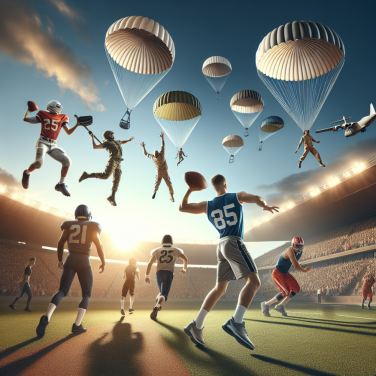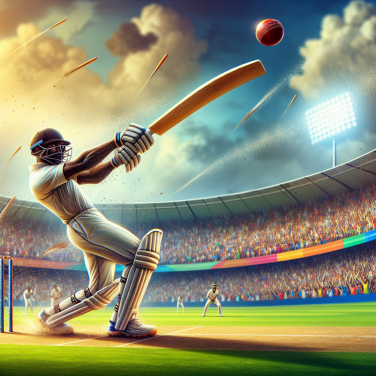Understanding the Surging Interest in Recreational Sports Leagues
Recreational sports leagues are not a new phenomenon but their increasing popularity, particularly in the adult demographic, is undeniably palpable in recent years. This surge in interest covers a wide array of sports, from traditional games like softball and soccer to more unconventional ones such as dodgeball and kickball.
In trying to understand this trend, it is important to consider the various factors that are contributing to the growing appeal of these recreational activity outlets.
One crucial contributing element is cultural. As a society, we are becoming more health-conscious and interested in physical fitness. Regular exercise is being recognized as an essential part of a balanced lifestyle. Sports leagues provide a regular schedule of athletic activity that's enjoyable and social. Coupled with the competitive aspect, this makes it a uniquely engaging form of exercise.
Social interaction is a significant part of the draw of recreational sports leagues. These communal games provide an excellent forum for adults to connect with new people, bond over shared interests and foster an authentic sense of community. This aspect is particularly appealing in this digital age where human interaction is often limited and mediated by screens.
The increasing flexibility of the modern workforce is also a factor in the growing interest in recreational sports leagues. More and more people are working from home or in flexible roles that allow them to structure their time differently. This change in the workplace paradigm is leaving more room for leisure activities and hobbies, which are increasingly filled by the organized structure and sociability of sports leagues.
Finally, recreational sports leagues often emphasize fun and inclusivity, which differentiates them from the high-pressure atmosphere of professional or even semi-pro sports. Adult recreational leagues are usually co-ed and encourage participation regardless of ability, age, or experience level. This approach takes the focus away from winning and places it on enjoying the sport, making friends, and staying active.
Considering all these factors, it’s not surprising that recreational sports leagues are experiencing a surge in popularity. They scratch a variety of societal itches, combining fitness, fun, and social interaction in a package that’s inclusive and accessible to all. The increasing diversity of the sports offered - with leagues dedicated to everything from traditional sports to more 'niche' games - is broadening the appeal and ensuring that there’s a league for every interest and ability level.
Moreover, recreational leagues have gone beyond being seasonal occurrences and have instead become year-round fixtures in most communities.
Read also:
Quidditch: The Magical Sport Soaring into Reality
The Impact of Recreational Leagues on Communities and Personal Well-being
Recreational leagues have been increasingly gaining recognition among adults and children alike due to their range of benefits on both individuals and communities. These leagues, which encompass a wide range of activities from soccer and rugby to bowling and chess, have seen a surge in their memberships over recent years. This growth seems to correlate with an increasing understanding of the pivotal role that play and recreation have in fostering social connections and promoting both physical and mental health.
Undoubtedly, the impact of recreational leagues extends far beyond the domain of physical health. These leagues provide a platform for individuals of different backgrounds and age groups to come together and socialize, promoting unity and camaraderie within communities. Local businesses also often stand to gain from the influx of participants and spectators brought in by these leagues, which can notably enhance the local economy.
Through active participation, individuals can foster their personal and interpersonal skills. In an era when digital interactions have become the predominant form of socializing, these leagues offer an indispensable avenue for face-to-face interaction, negotiation and teamwork. Players often end up doing much more than just playing a game; they learn valuable lessons in leadership, sportsmanship and cooperation.
Recreational leagues also provide potential avenues for personal development. They are an ideal place for nurturing talent and fostering a sincere appreciation for the sport or activity of choice. Irrespective of whether individuals participate in these leagues as hobbyists or with a desire to compete professionally, there is no denying that participation contributes to a healthier, more balanced lifestyle.
Moreover, recreational leagues also play crucial roles in promoting community involvement. Participation in these leagues often also entails serving as volunteers for local events and tournaments. Such involvement in community activities can engender a strong sense of communal belonging and collective effort.
The positive impact of recreational leagues on mental health should not be underestimated. Regular participation in leisure activities can significantly reduce stress and anxiety, improve mood, and even alleviate symptoms of depression. In essence, recreational leagues offer a fun and interactive way to establish a physically and mentally healthier lifestyle.
Lastly, the benefits of recreational leagues are not confined to those who are physically able. Many communities have leagues established for individuals with various kinds of disabilities, allowing them to participate and enjoy the benefits of recreational play. This inclusivity helps develop empathy and understanding in the general public and enhances socialization and self-esteem for people with disabilities.
In conclusion, recreational leagues have a wide-reaching and profound impact on the well-being of individuals and the communities they belong to.




